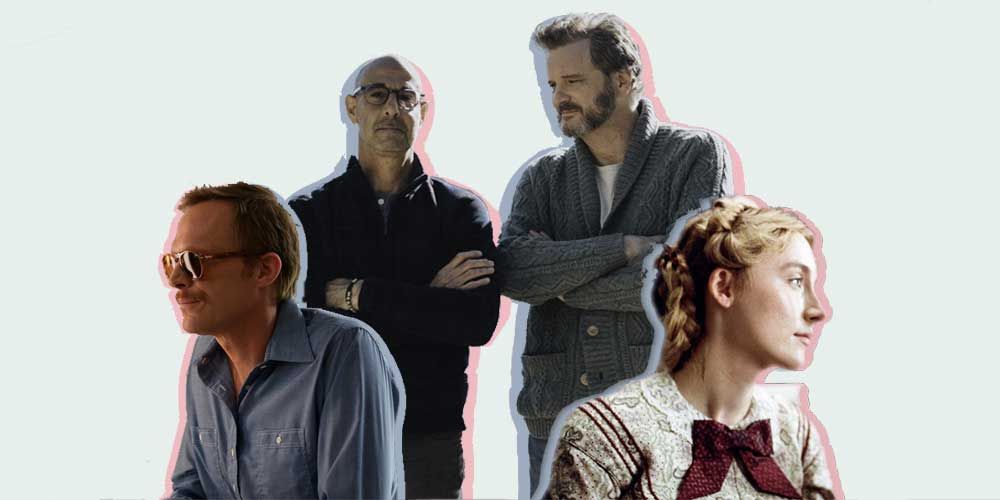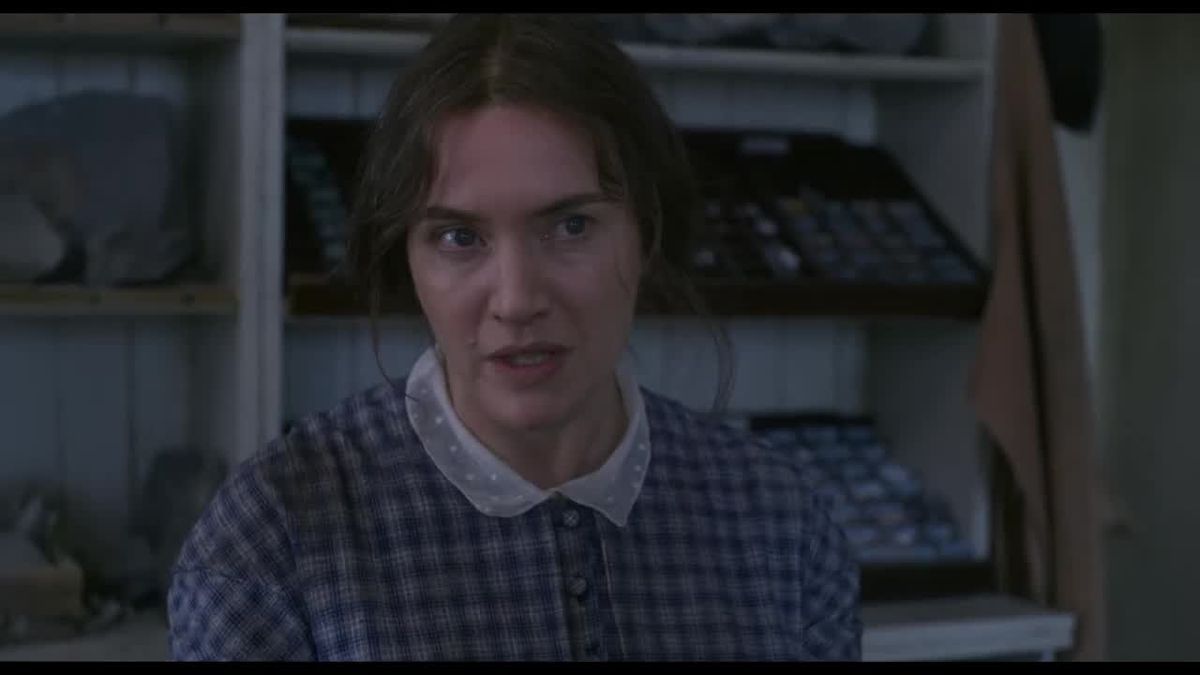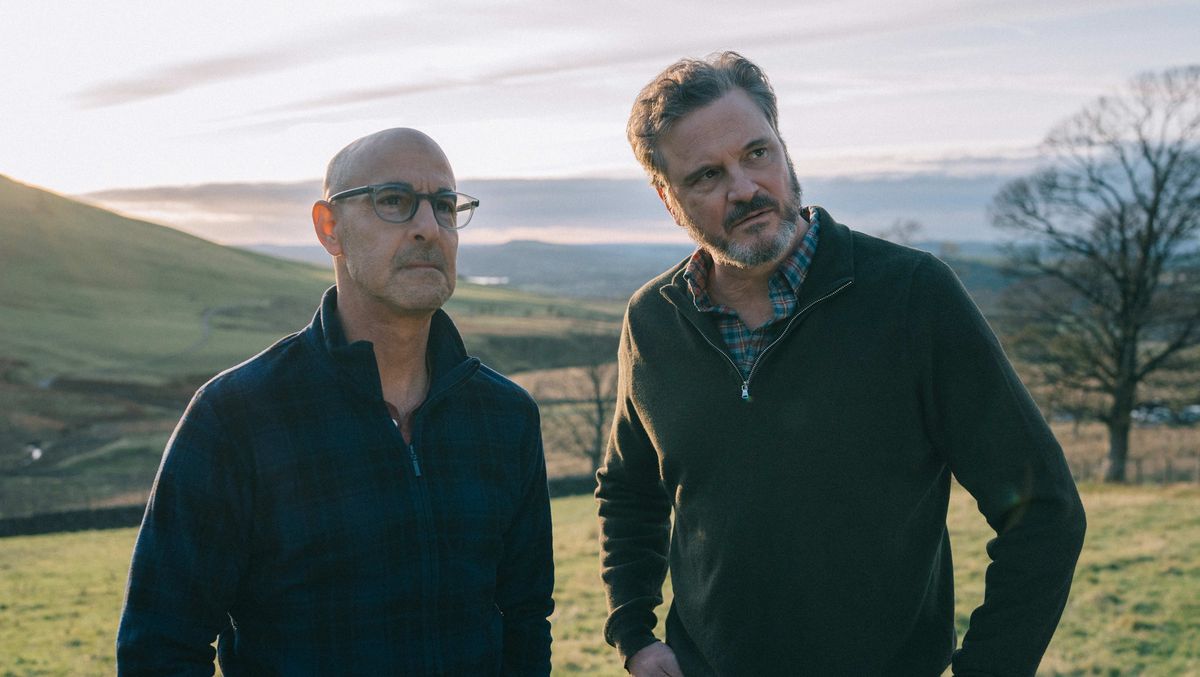With the arrival on our screens this season of several queer-themed films, the thorny question of how best to do justice to LGBT lives onscreen is rearing its head once more. In prestige, awards-y films, from Francis Lee’s Ammonite to Viggo Mortensen’s Falling, via the Paul Bettany-starring Uncle Frank and the two-hander Supernova (with Colin Firth and Stanley Tucci), we have, perhaps, a plethora of gay-themed stories such as we haven't seen in cinema for some time. This marks, for certain, a step forward for representation and acceptance; and yet, as gay rights have progressed, the film world still finds itself behind on certain markers.
Blockbusters have been all but absent from our screens in 2020, but the most widely watched movies of our time – superhero franchises – have been appallingly slow to throw the queer community a bone. This looks set to change next year with the release of Eternals, the next Marvel film, which features a much-bruited about same-sex relationship between two characters played by Brian Tyree Henry and Haaz Sleiman. The auguries are good: both are actors of colour, marking a refreshing change from the norm, and Sleiman is one of very few openly out actors in Hollywood. Not just this, but he is brazenly gay, being (at least in this queer critic’s recollection) the only actor to come out as both gay and a total bottom. This means that the relationship depicted in the film has the chance to be visually authentic, connecting to a lived queer experience.
But the situation in film – certainly in mainstream cinema – is otherwise relatively bleak. So many gay actors are closeted; so few ply their trade in movies. TV, from Pose to Orange Is The New Black via I May Destroy You and countless others, is, by and large, far more progressive in its representation and casting of LGBT characters. It may well be that one effect of the streaming revolution, which blurs the lines between cinema and TV, will be to represent queer people more honestly in movies, since part of the calculation seems to be that people will be more accepting of LGBTQ+ themes in their own homes than at the cinema.
In 2020, however, we are still faced with the issue of straight actors playing gay roles, a question which has started to make waves in recent years. Following the release a little while ago of such films as Call Me By Your Name or Love, Simon or The Miseducation of Cameron Post, and prompted by the casting of Jack Whitehall in Disney’s first ever gay role, I wrote about what I saw as a kind of queer minstrelsy.
It seemed to me – and still seems so, to varying degrees – that the continual casting of straight actors in queer roles had several effects, none of them particularly delightful. First off, it means the disappearance, or erasure, from our screens, of what can be thought of as a kind of gay language: this is to do with body language, voice, and other ways of being, that could be thought of as denoting queerness. The codes, the idioms that queer people have devised, or are drawn to, in order to mark ourselves out from straight people or to subvert or counteract straight people – our historic oppressors – are in these instances replaced with a weird kind of void. At times, to the queer viewer, watching straight actors “playing gay” can feel like an uncanny grafting of straight behaviour onto specifically queer experiences; something feels amiss but it can be hard to know just what. Watching Call Me By Your Name, I feel like something is lacking: it might be a certain intensity; it could be the way these two bodies size each other up and co-exist alongside one another; the way the desire feels anonymous, or lacking in a particular direction.
A secondary effect of the casting of straight actors in queer roles is that it robs queer actors of reasons to come out, and of opportunities to show their worth – their ability to win over audiences. Part of the problem is inherently capitalistic: if queer actors can’t be seen to carry a film, the industry will always revert to straight movie stars with proven box office credentials. There is a vicious circle at play here – and the cachet earned by straight actors for playing gay doesn’t tend the other way.
Not all of it is cut-and-dry: the writer Otamere Guobadia argues that the other side of this coin is that queer people can become engaged in gatekeeping, when in fact queer sexuality is fluid; requiring actors to label themselves, so that we can interpret their performances in a certain light, can have an effect detrimental to queer experimentalism and progress. Guobadia rightly points out that Chloe Grace Moretz had simply not labelled herself at the time of appearing in The Miseducation of Cameron Post, and had since come out. It’s not possible to tell everybody’s inner sexuality, nor necessary to require it from everyone.
On top of these questions of performance, so many other aspects of a film’s creation contribute to authenticity, to accurately depicting queer lives; towards making something exciting and vivid out of that endeavour. Directing, writing; the devising of the piece – these things interplay with the acting performances at a film’s heart. So how does this new crop of arthouse movies, none of which features a queer actor in a queer role, convey queer sexuality? What choices are present in these films, and how do they contribute to queer culture, if at all?
Viggo Mortensen’s Falling tells the story of Willis Peterson, a cantankerous, foul-mouthed, rightwing old homophobe (played by Lance Henriksen) who is forced to sell the family home and move to California to live with his gay son (Mortensen), in order to be cared for during his bouts of dementia. (In this the film presents a mirror image of Alan Ball’s Uncle Frank, which finds a gay man reluctantly returning to the home of his homophobic pater familias – of which more later) Falling, then – a Trump-era film if ever there was one – stages an opposition between, on the one hand, a man representing the past, heterosexuality, righwingery and rural America, and on the other hand the modern day, homosexuality, progressive politics and American city life.
This is simplistic but relatively effective, insofar as the dichotomy makes Mortensen’s performance as John Peterson stand out for its mildness. There is almost a devotional quality to this man’s steadfast refusal of violence, and of confrontation. This much rings true, and it feels, furthermore, as if this character has undergone therapy, in the ways he manages not to rise to his father’s taunts. Still, though, something here seems lacking. The film is so oddly forgiving toward the monstrously vile character at its heart, in a way that – it seems to me – robs it of any queerness. Some sense of queer rage at this paternal figure, a wholesale rejection of him, would feel more plausible than this fairly benevolent depiction of a Deplorable; or a touch of irony, some acid in the tone, would lift the narrative out of what feels like a straight-patriarchal format.
Questions about fatherhood (John Peterson has a daughter with his partner) feel more suited to a film about two straight men opposed in their outlook, rather than two men fundamentally at odds in the way they view and experience the world. Throughout the film, John’s relationship with his partner, Eric (Terry Chen) is presented as chaste, comradely, supportive; these are two men in late middle age, two fathers; and it may be, too, that John has internalised some homophobia leading to him being fairly undemonstrative. But still something here feels a little undercharged, as if these two men were good friends rather than lovers.
Uncle Frank suffers from a similar problem. Ostensibly a road movie (like Supernova, of which more later), it finds Paul Bettany’s title character journeying south from New York with his teenage niece and his boyfriend, Walid (played by Ball’s longterm partner, Peter Macdissi), after the death of his father. The relationship between Frank and Walid feels, perhaps, a little more warm and lived in – there is a teasingly affectionate dynamic at play here, and a physical intimacy between the players that makes the relationship believable.
But a few problems remain. For one, Frank when travelling is tormented by flashbacks to his tragic first love, as a teenager, which has the unfortunate effect of draining his current relationship of its life-force. For another, Ball’s writing, usually rather effervescent, feels somewhat defanged here; there is a golden hue enveloping everything, giving this movie an MOR, family-friendly feel, rather than capturing the pain at its heart, as it should. This resistance to conflict, or the way the film resolves conflict too readily, feels akin to the dynamic in Falling; it seems like the movie didn’t want to offend. As a result, this de-queers its storyline: why, for instance, is Frank viewed through the prism of his boring, straight niece (hence the title)? Placing Frank front and centre would have been bolder, and allowed Ball to flesh out this homosexual man to match Paul Bettany’s pleasingly committed performance.
Ammonite, Francis Lee’s follow-up to God’s Own Country, finds the director telling a story of lesbian romance, between the Victorian palaeontologist Mary Anning (Kate Winslet) and Charlotte Murchison (Saoirse Ronan), a young, frail bride. Of the films discussed here, Ammonite is the only one that deals with a love story per se, and for this reason is the only film to explore sex – which it does with some fine, rough and ready sex scenes between the protagonists. It’s clear in the film that Mary is more sexually experienced than Charlotte, which imparts an interesting shape to the relationship, whereby the naif desires and seeks out the older woman.
This feels right, and it feels queer, representing a spicy reversal of straight dynamics. In Kate Winslet’s ferocious performance, too, you see not just a contrast with straight mores, but an opposition to them; Mary’s work, her outdoorsiness, her flouting of conventions, add up to a fine document of a character who feels plausibly other. Finally, in setting his characters, often, at a remove from the eyes of society – only really considering the relationship through that prism in the last act – Lee doesn’t bow to straightness, its judgments or conventions; this seems like a judicious course.
Finally, Supernova, the second feature of Harry Macqueen, stars Colin Firth and Stanley Tucci as Sam and Tusker, a couple travelling to the Lake District in a camper van, to visit Sam’s family. The lens of a journey is a good one for representing this couple, as it enables us to see their ease with each other, their lived-in comfort. This is good writing, which also sets the couple within a large gathering of family and friends: they stand out a little in these surroundings, but equally part of Supernova’s project is to politicise queer relationships by normalising them. There is something to be said for this approach, which yields scenes of enormous tenderness. If, at times, there does seem to be an incongruous stiffness, or perhaps even a brotherliness, between the two main players, the film also challenges our view of these actors, not least by showing Colin Firth in a new light. Here, as a devoted, caring partner, Firth’s faintly uxorious gentleness, his selflessness, his emotionality, run counter to his usual image as a somewhat regal, eternally manly figure, and so rewrite our views of masculinity. This is the film’s biggest coup, because it also challenges Firth’s standard sex appeal, making him sexy in a queer way for perhaps the first time. As in Falling, the relationship here is apparently non-sexual – or perhaps post-sexual; this seems a little odd, if not necessarily implausible.
Perhaps the greatest impediment to telling fully engaged queer stories is dictated by the market, and the most fully-fledged LGBT experiences, cumulating in frank sex and authentic depictions of lives that differ from the mainstream, will always be relegated to the margins. A good example of this sort of vibrancy can be found in the recent German film No Hard Feelings, which casts obviously gay actors in the lead roles and depicts gay sexual desire with a sweetly innocent frankness. But for the purposes of LGBT culture making inroads into the mainstream, and queer lives being represented more diversely to wider audiences, on this latest showing there appear to be glimmers of progress. Mainstream audiences have access to more material than ever before, and are used to new approaches from the world of television. Cinema is following there rather than leading, but some of the signs are positive.
Like this article? Sign up to our newsletter to get more delivered straight to your inbox
Need some positivity right now? Subscribe to Esquire now for a hit of style, fitness, culture and advice from the experts














